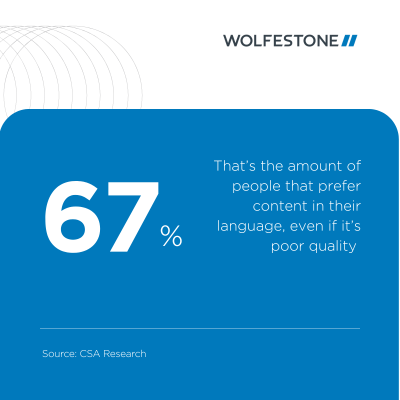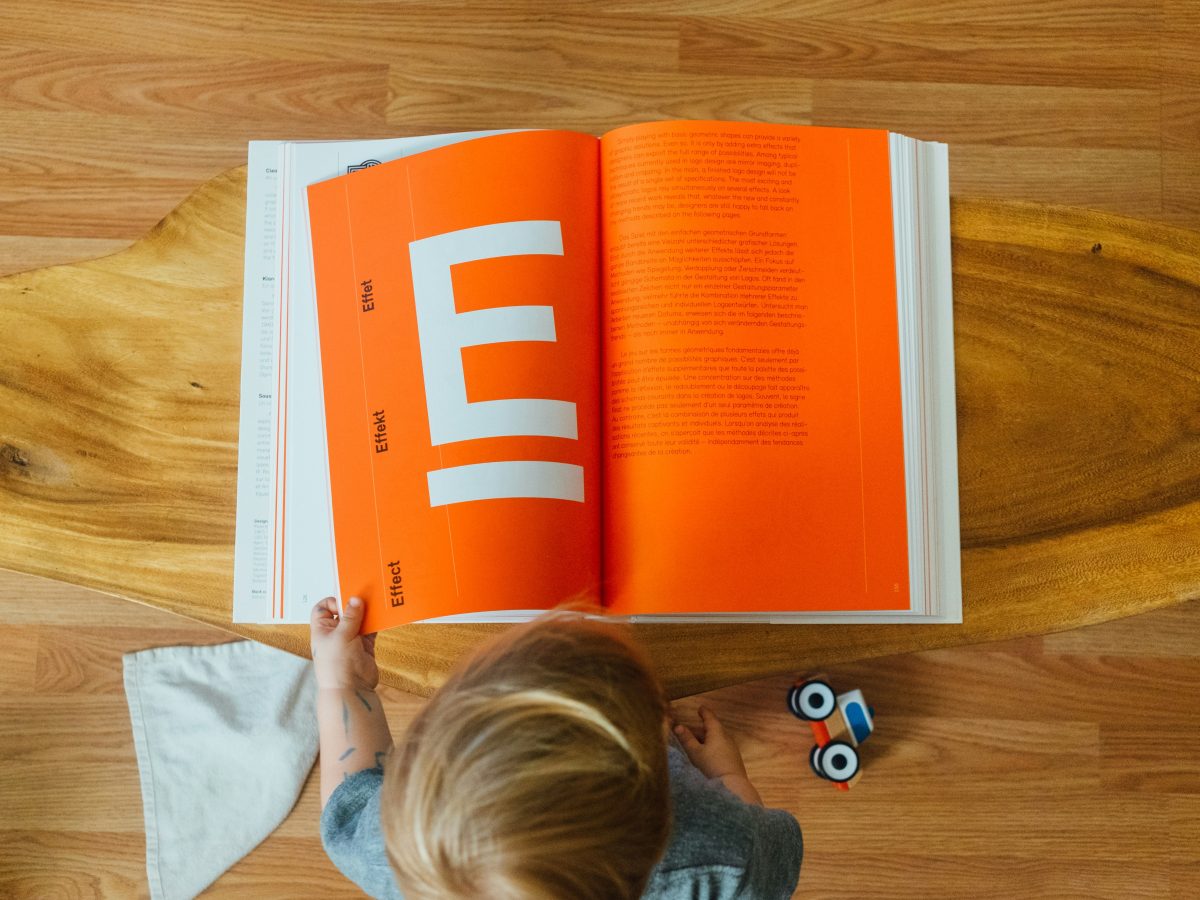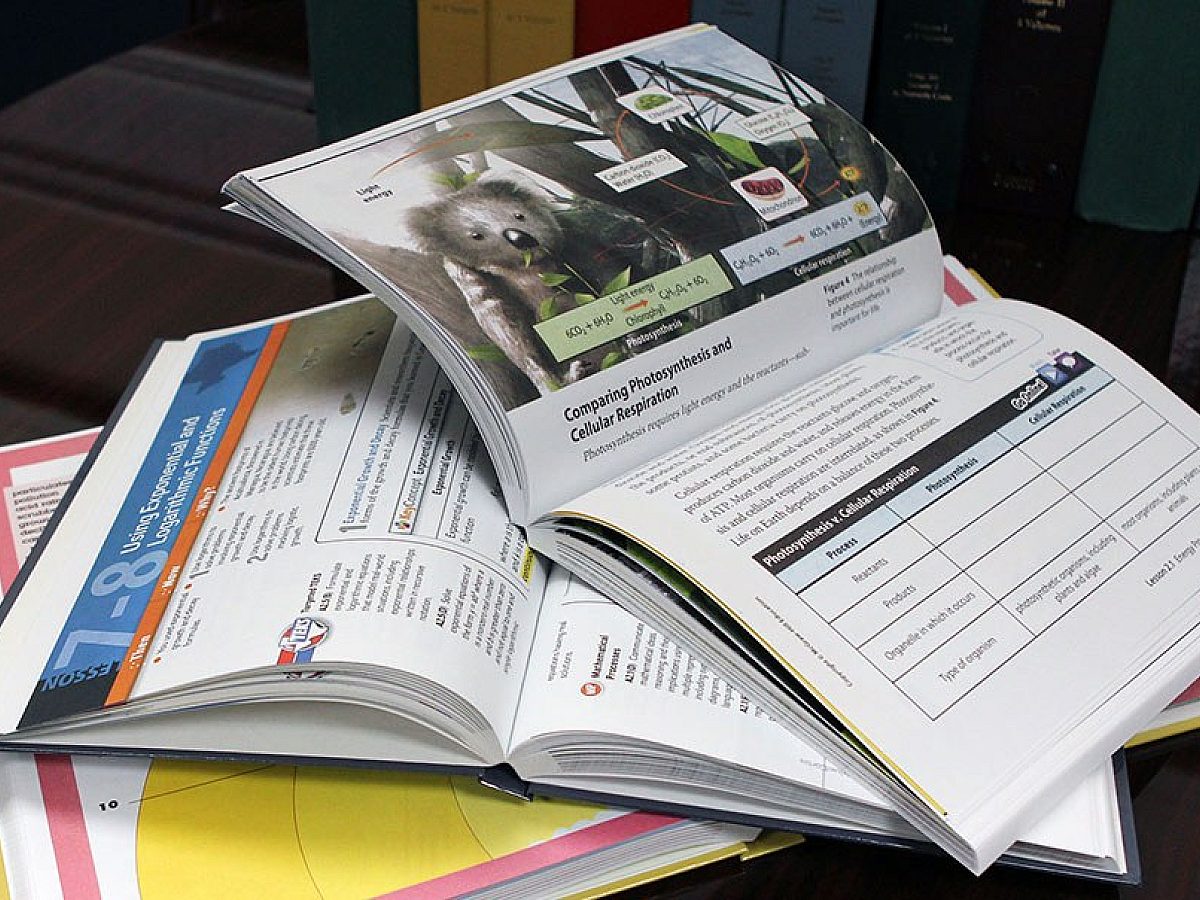𝘈𝘱𝘱𝘳𝘰𝘹 𝘳𝘦𝘢𝘥 𝘵𝘪𝘮𝘦: 3 𝘮𝘪𝘯𝘴🕒
Imagine cutting off 40% of potential customers.
Two in five buyers (40%) will never buy from websites in other languages, CSA Research outlines.
There are several reasons why customers buy in their native tongue. Familiarity, trust and appeal are a few.
But, there is a method behind the madness as to why brands target customers in their language. We've seen this consistently across our 18 years in the translation game.
So, in this blog, we’ll explore the ‘why’ in more detail and look at a real-life example.
Analysis: Why do customers buy in native tongue?
Now, we know that more than three in four shoppers (76%) would rather buy products with information in their native language.
But why? What does it come down to? And how does the brain work to feel that way?
Appeal
Customers naturally feel more targeted by their native language as opposed to other languages.
It’s human nature.
There are various studies and findings that bring together the idea that the limbic system (structures in your brain that govern emotions and more) is more responsive to a person's first language than a second language and parts of the brain are more active in their first language.
So, it’s understandable that the consumer would then be more likely to buy in their first language.
Familiarity
People like things that are familiar. Smells, places, people, things that they’d consider homely. And given how much we’re exposed to our native language, that too is familiar. It’s part of your comfort zone.
In psychology, it’s known as the mere exposure effect. This is where simply being exposed to something more increases liking.
Factors such as localised payment methods, images relevant to the market and symbols like dollars ($) if it’s a US brand, all make for a better and more relatable customer experience where they feel at ease.
This familiarity can even lead to consumers paying more. A Unibabel survey in 2021 found that nearly two in three people (64%) said that they would pay a higher price for a product or service if the customer experience was offered in their native tongue.
Trust
It isn’t just as simple as placing more trust in your native language. Psychology is at play here too.
In the context of being appealed to emotionally (which may be through localised marketing or branding as Vogue does), consumers tend to find their native language more trustworthy.
Research leans towards this idea that people see advertisements in a native language as more credible and emotionally powerful as opposed to a second language. Therefore, building more trust.

“Decades of linguistic data and behavioural analysis have taught us that people trust what feels familiar. When content is delivered in that language, it speaks directly to us as humans. That is why localisation methods can be so effective.”
Real-life example of speaking to customers in their language: The Hangover
Following the release of The Hangover film, it was tailored to the Quebec market with the name ‘Lendemain de veille’, translating to ‘the day after the night before’.
This is easier for this audience to understand, and it appeals to them more.
It is interesting to note that in France, the film is called ‘Very Bad Trip’ rather than being in French. The word for hangover translates to ‘wooden mouth’, referring to a dry mouth after drinking.
So, the team thought it was more appropriate to go with ‘Very Bad Trip’, which French people can relate to as the phrase ‘un bad trip’ is commonly used to describe a bad experience with alcohol.
It may not be in the French language, but it is still a case of speaking a language they understand.
What are the results of speaking to customers in their native tongue?
- Increased ROI on localisation
- Increased likelihood of purchase
- Increased trust
- Raised brand loyalty
- Raised brand perception
Conclusion
As a translation company with plenty of experience since 2006, we think it’s important to add that these findings don’t mean you should localise your product into every single language.
It will be costly and may not be backed up by data. Instead, based on market research, target a few specific markets where there is a realistic chance for growth and to heavily appeal to consumers there.
Take a look at our localisation services today and get a free quote.
𝘑𝘢𝘤𝘬 𝘸𝘳𝘪𝘵𝘦𝘴 𝘢𝘣𝘰𝘶𝘵 𝘵𝘳𝘢𝘯𝘴𝘭𝘢𝘵𝘪𝘰𝘯, 𝘭𝘰𝘤𝘢𝘭𝘪𝘴𝘢𝘵𝘪𝘰𝘯 𝘢𝘯𝘥 𝘮𝘰𝘳𝘦 𝘭𝘢𝘯𝘨𝘶𝘢𝘨𝘦 𝘴𝘰𝘭𝘶𝘵𝘪𝘰𝘯𝘴 𝘧𝘰𝘳 𝘞𝘰𝘭𝘧𝘦𝘴𝘵𝘰𝘯𝘦. 𝘏𝘦 𝘭𝘰𝘷𝘦𝘴 𝘵𝘰 𝘧𝘪𝘯𝘥 𝘳𝘦𝘢𝘭-𝘭𝘪𝘧𝘦 𝘦𝘹𝘢𝘮𝘱𝘭𝘦𝘴 𝘰𝘧 𝘸𝘩𝘦𝘯 𝘴𝘰𝘭𝘶𝘵𝘪𝘰𝘯𝘴 𝘩𝘢𝘷𝘦 𝘢𝘯𝘥 𝘩𝘢𝘷𝘦𝘯'𝘵 𝘸𝘰𝘳𝘬𝘦𝘥 𝘵𝘰 𝘱𝘳𝘰𝘷𝘪𝘥𝘦 𝘢𝘴 𝘮𝘶𝘤𝘩 𝘳𝘦𝘭𝘢𝘵𝘢𝘣𝘭𝘦, 𝘰𝘳𝘪𝘨𝘪𝘯𝘢𝘭 𝘤𝘰𝘯𝘵𝘦𝘯𝘵 𝘵𝘰 𝘵𝘩𝘦 𝘢𝘶𝘥𝘪𝘦𝘯𝘤𝘦 𝘢𝘴 𝘱𝘰𝘴𝘴𝘪𝘣𝘭𝘦.







